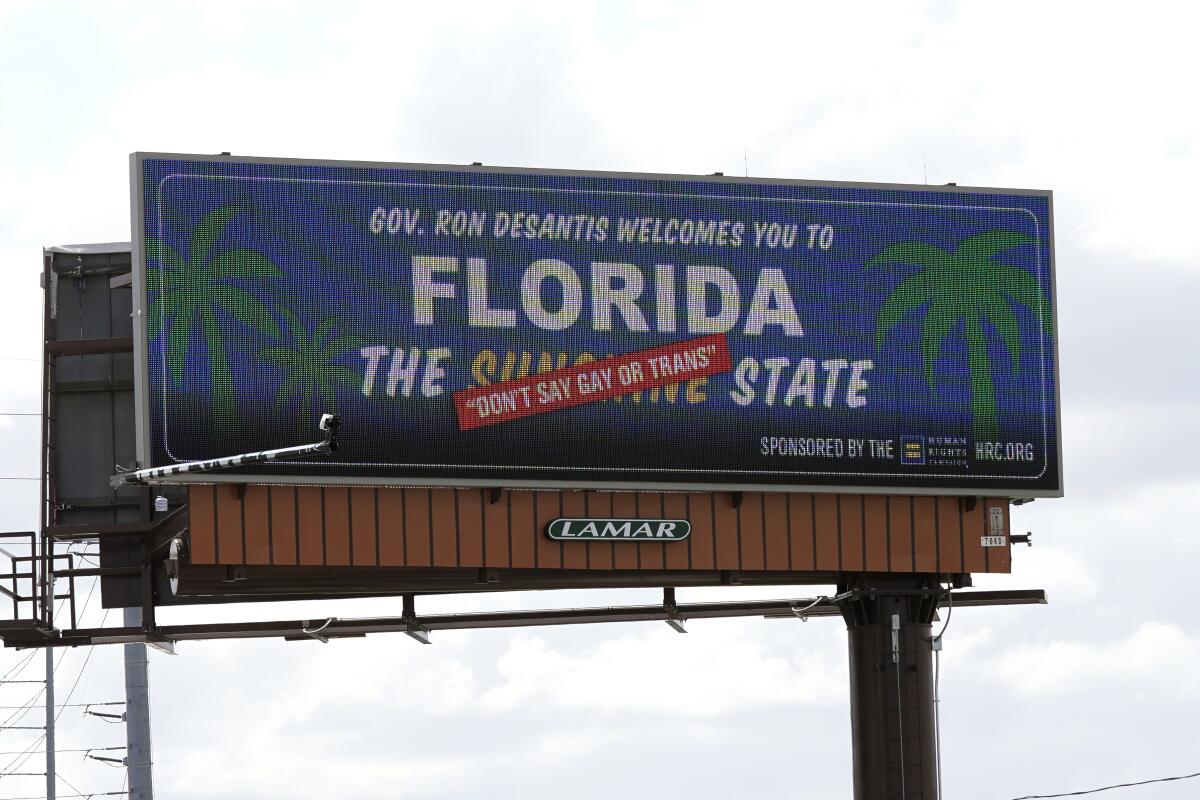Former Florida lawmaker who sponsored ‘Don’t Say Gay’ sentenced to prison for fraud

- Share via
TALLAHASSEE, Fla. — The former Florida lawmaker who sponsored the controversial law critics call “Don’t Say Gay” was sentenced to six months in federal prison Thursday for defrauding a federal coronavirus relief loan program for small businesses.
Former state Rep. Joe Harding, a 36-year-old Republican, resigned in December after being charged with fraudulently obtaining more than $150,000 from the Small Business Administration in pandemic aid loans. He pleaded guilty in March to wire fraud, money laundering and making false statements in connection with COVID-19 relief fraud.
“The theft of any amount of taxpayer funds is inexcusable,” said U.S. Atty. Jason Coody in a news release. “However, the defendant’s deceptive acts of diverting emergency financial assistance from small businesses during the pandemic is simply beyond the pale.”
The Board of Education approved a ban on classroom instruction about sexual orientation and gender identity in all grades.
According to court documents, Harding made false statements to the SBA while applying for an Economic Injury Disaster Loan for one of his dormant business entities. After obtaining $150,000 in COVID-19 relief funds, according to prosecutors, Harding conducted three monetary transactions, each involving more than $10,000 in fraudulently obtained funds: a transfer to his joint bank account, a payment to his credit card and a transfer into a bank account of a third-party business entity.
The loan program was designed to provide economic relief to small businesses experiencing a temporary loss of revenue.
Harding became nationally known last year over his sponsorship of a law that forbids instruction on sexual orientation and gender identity in kindergarten through third grade, as well as material that is not deemed age-appropriate, which came to be known as Don’t Say Gay.
Sign up for Essential California
The most important California stories and recommendations in your inbox every morning.
You may occasionally receive promotional content from the Los Angeles Times.








